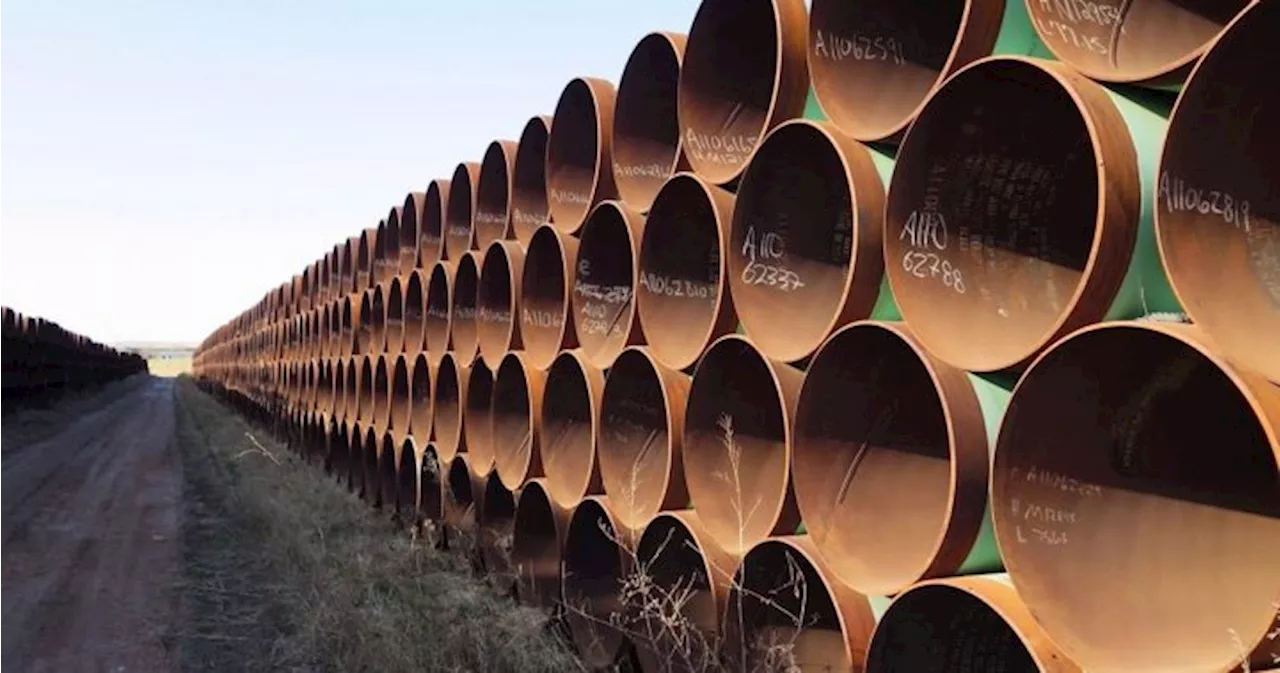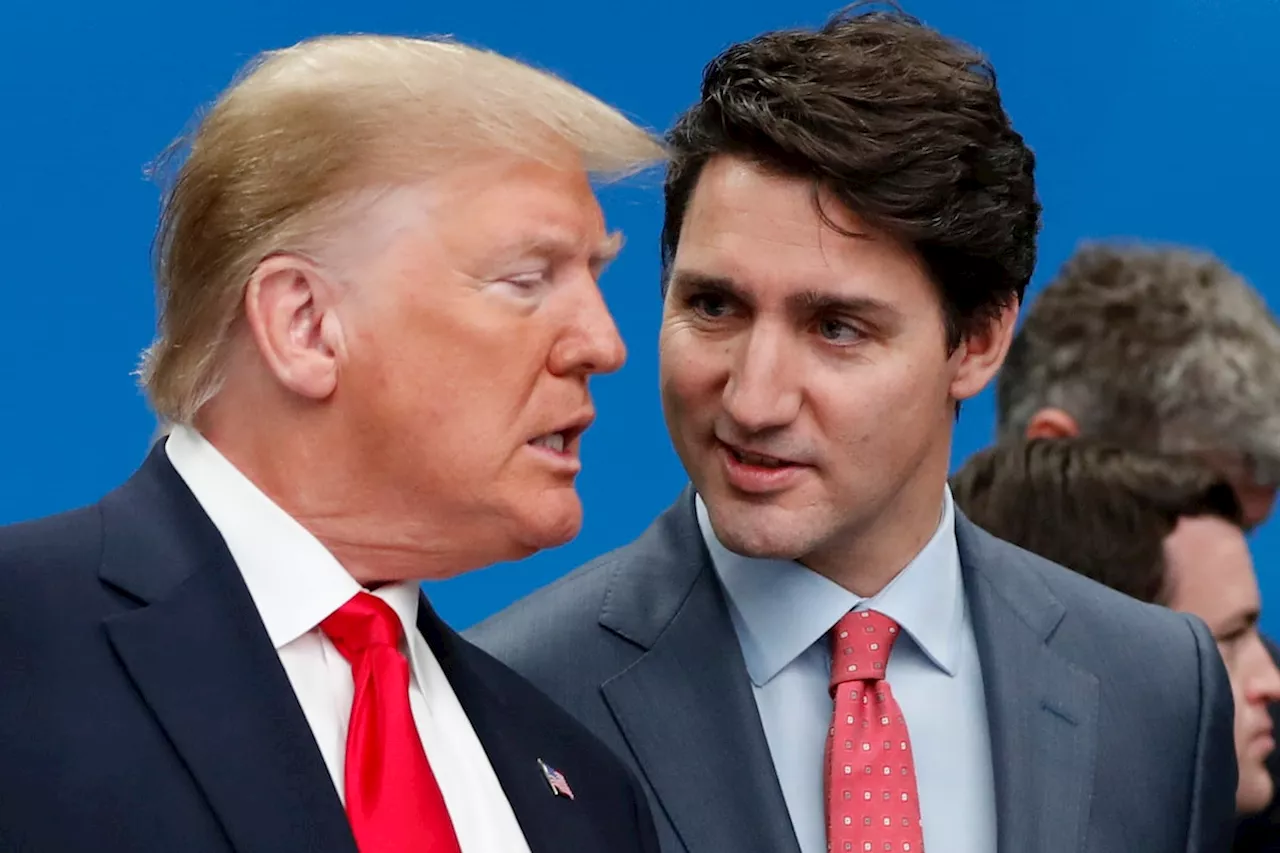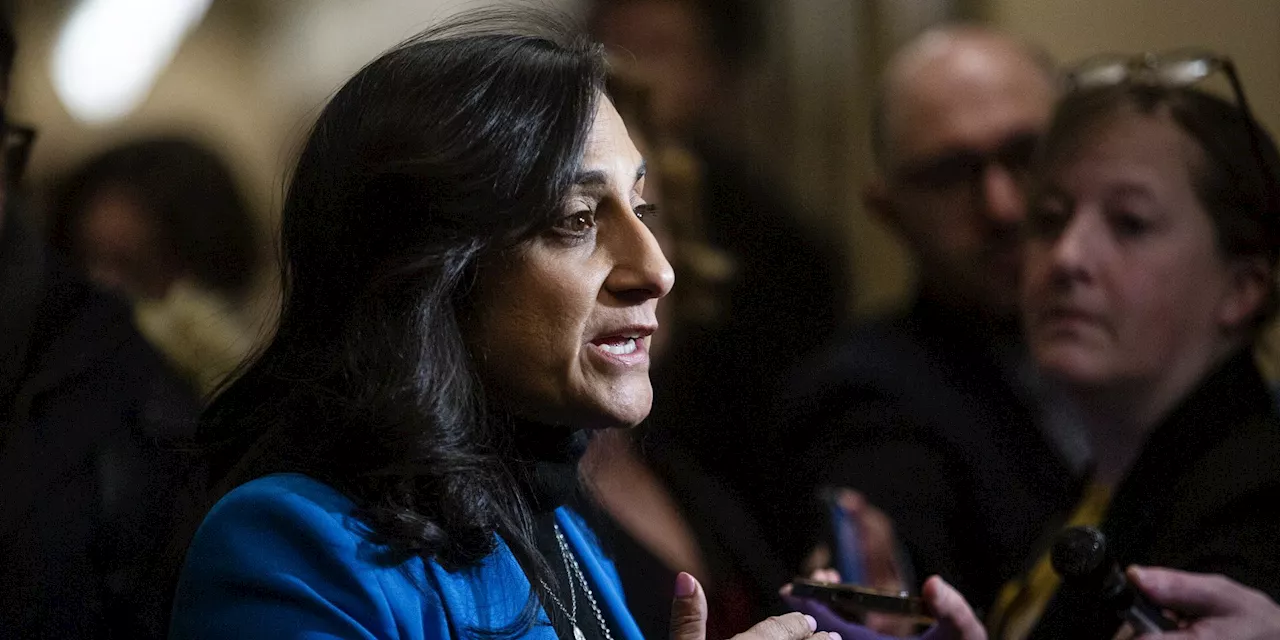This article argues that Canada must seize the opportunity presented by U.S. protectionist policies to build a more self-reliant and diversified economy. It highlights the need for investments in next-generation infrastructure, electrification, and talent development to position Canada as a global leader in clean energy exports.
Canada finds itself squarely in the crosshairs of the Trump administration, facing a barrage of unpredictable and unrelenting demands across a multitude of issues. This presents a political game of whack-a-mole, one that Canada cannot hope to win. While tariffs may be the weapon of choice at present, the underlying strategy is one of economic coercion.
Canada is not dealing with a rational actor willing to engage in good-faith discussions regarding legitimate concerns about border security, defense, climate policy, banking, or trade. Instead, we anticipate a persistent stream of unilateral, evidence-free assertions, often veering into delusion, masquerading as policy. This inability of the U.S. President to differentiate between allies and adversaries will ultimately harm the U.S. but not before inflicting significant damage on Canada's economy. Retaliatory tariffs might offer some short-term leverage, but they are no substitute for a comprehensive, long-term strategy. Canada must urgently adopt a forward-thinking approach that fortifies economic resilience and minimizes its vulnerability to U.S. policy volatility. A national strategy must prioritize the development of a more self-sufficient and diversified economy, commencing with the establishment of a robust east-west trade corridor. This corridor should transcend the outdated model of solely expanding oil and gas pipelines.This juncture transcends a mere trade dispute; it is a test of Canadian sovereignty and economic foresight. The response must be bold and transformative, positioning the country to address the dual challenges of economic security and climate change. Future generations might view this crisis as the catalyst that propelled Canada onto a new path. This strategy must be founded on three pillars. Firstly, the development of next-generation infrastructure that maximizes Canada's natural resource wealth—including critical minerals, hydro, nuclear, and renewables—ensuring national benefits. Secondly, a steadfast commitment to electrification across all sectors to harness our technological advantages in power generation, transmission, and artificial intelligence. Thirdly, a sharp focus on talent development, enterprise, and innovation to cultivate a more dynamic, self-reliant economy. This endeavor must be complemented by the elimination of internal trade barriers that impede businesses from scaling up and competing globally. Federal and provincial governments must actively support market expansion while leveraging Canada's diplomatic and trade relationships to strengthen existing agreements and explore new markets. While diversification away from the U.S. is a crucial short-term objective to mitigate exposure to economic blackmail, infrastructure development must remain adaptable to facilitate improved relations in the future. Energy security and national security must be intrinsically linked. Expanding electricity trade within Canada and with strategic partners can capitalize on our low-carbon advantage while contributing to continental emissions reductions. A substantial expansion of interprovincial electricity trade, supported by new transmission interconnections, could create regional energy hubs that foster economic integration. Once the U.S. recognizes the detrimental impact of its protectionist policies, transforming it into an island of high-cost production, Canada should be well-positioned to re-engage as a vital energy supplier on its own terms.Electrification and large-scale electricity trading must become central pillars of Canada's national policy. Existing regional markets are currently constrained by limited transmission infrastructure, preventing the trading of electricity at the scale facilitated by pipelines for oil and gas. However, studies indicate that the energy equivalent of the Trans Mountain pipeline expansion could be transmitted more efficiently through high-voltage direct current power lines. Globally, long-distance clean electricity transmission has proven both feasible and cost-effective. Moreover, electrified freight transport, already well-established in Europe, should be integrated into Canada's infrastructure planning. Co-locating high-voltage transmission lines along existing rail corridors would minimize land-use conflicts while laying the groundwork for future economic growth.Meanwhile, the surging electricity demand fueled by AI-driven data centers, electric vehicles, heat pumps, and industrial electrification underscores the imperative for expanded generation capacity. Canada's oil and gas expertise could be repurposed for geothermal energy development, accelerating the transition away from fossil fuel dependence. Electricity generation is not merely a commodity; it is also a high-value, manufactured good with immense potential to drive economic growth through interprovincial and international trade. Canada must position itself as a global leader in clean energy exports, utilizing transmission infrastructure as the backbone of a modernized, competitive economy. Investments in energy infrastructure and trade, viewed through the lens of national security, could also contribute to reshaping discussions regarding defense spending
CANADA ENERGY SECURITY ECONOMIC RESILIENCE U.S. PROTECTIONISM INFRASTRUCTURE DEVELOPMENT ELECTRIFICATION TALENT DEVELOPMENT
Canada Latest News, Canada Headlines
Similar News:You can also read news stories similar to this one that we have collected from other news sources.
 Energy minister makes the case for U.S.-Canada energy alliance in WashingtonWASHINGTON — Energy and Natural Resources Minister Jonathan Wilkinson — the latest Liberal to visit Washington in response to president-elect Donald Trump’s tariff threats — is making a pitch for a Canada-U.S. energy and resource alliance.
Energy minister makes the case for U.S.-Canada energy alliance in WashingtonWASHINGTON — Energy and Natural Resources Minister Jonathan Wilkinson — the latest Liberal to visit Washington in response to president-elect Donald Trump’s tariff threats — is making a pitch for a Canada-U.S. energy and resource alliance.
Read more »
 Canada's Energy Dependence on the US Raises Concerns Over Trump's TariffsConcerns are mounting in Canada's energy sector as President Trump's planned tariffs on Canadian goods, including energy products, threaten to disrupt the integrated energy market between the two nations. Experts warn that retaliatory measures from Canada could further exacerbate the situation, ultimately harming both economies. The reliance on the US market for Canadian energy exports is seen as a major vulnerability, highlighting the need for Canada to diversify its energy markets.
Canada's Energy Dependence on the US Raises Concerns Over Trump's TariffsConcerns are mounting in Canada's energy sector as President Trump's planned tariffs on Canadian goods, including energy products, threaten to disrupt the integrated energy market between the two nations. Experts warn that retaliatory measures from Canada could further exacerbate the situation, ultimately harming both economies. The reliance on the US market for Canadian energy exports is seen as a major vulnerability, highlighting the need for Canada to diversify its energy markets.
Read more »
 The Value of Politics: Rethinking Politician Compensation in CanadaThis article explores the ongoing debate surrounding politician compensation in Canada, examining the challenges of attracting qualified individuals to public service, the concerns about potential conflicts of interest arising from multiple public agency roles, and the need for greater transparency and accountability in the system.
The Value of Politics: Rethinking Politician Compensation in CanadaThis article explores the ongoing debate surrounding politician compensation in Canada, examining the challenges of attracting qualified individuals to public service, the concerns about potential conflicts of interest arising from multiple public agency roles, and the need for greater transparency and accountability in the system.
Read more »
 Canadian Minister Proposes Energy Alliance to Counter US TariffsCanadian Energy and Natural Resources Minister Jonathan Wilkinson visited Washington to urge the incoming Trump administration to pursue a Canada-U.S. energy and resource alliance instead of imposing tariffs. Wilkinson argued that aligning on energy would benefit both countries' economic dominance and national security, highlighting Canada's vital role in supplying energy to the U.S. He suggested joint investments in critical minerals and increased flow of oil and potash from Canada to the U.S.
Canadian Minister Proposes Energy Alliance to Counter US TariffsCanadian Energy and Natural Resources Minister Jonathan Wilkinson visited Washington to urge the incoming Trump administration to pursue a Canada-U.S. energy and resource alliance instead of imposing tariffs. Wilkinson argued that aligning on energy would benefit both countries' economic dominance and national security, highlighting Canada's vital role in supplying energy to the U.S. He suggested joint investments in critical minerals and increased flow of oil and potash from Canada to the U.S.
Read more »
 Canada Needs to Seize the Moment and Diversify TradeThe recent actions of US President Donald Trump have highlighted Canada's overreliance on the US economy. The article argues that Canada has been complacent and missed opportunities for growth in regions like Asia and Africa. It emphasizes the need for Canada to diversify its trade relationships, pointing to existing trade agreements and initiatives with various regions as a foundation for future growth.
Canada Needs to Seize the Moment and Diversify TradeThe recent actions of US President Donald Trump have highlighted Canada's overreliance on the US economy. The article argues that Canada has been complacent and missed opportunities for growth in regions like Asia and Africa. It emphasizes the need for Canada to diversify its trade relationships, pointing to existing trade agreements and initiatives with various regions as a foundation for future growth.
Read more »
 Canada's Moment of Opportunity Amid Trump's TariffsThis article analyzes the impact of Trump's recent tariff threat on Canada, arguing that the temporary reprieve provides a valuable opportunity for the country to pursue reforms and secure its economic future.
Canada's Moment of Opportunity Amid Trump's TariffsThis article analyzes the impact of Trump's recent tariff threat on Canada, arguing that the temporary reprieve provides a valuable opportunity for the country to pursue reforms and secure its economic future.
Read more »
